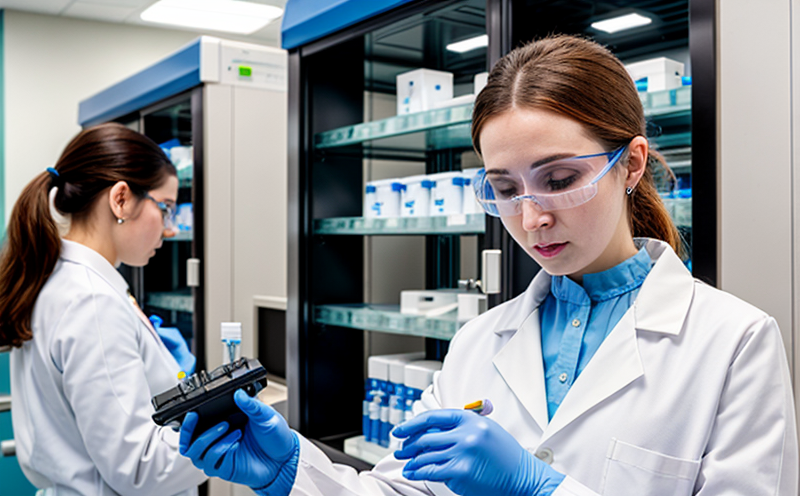Bioanalytical Method Qualification Testing
In the pharmaceutical sector, ensuring that bioanalytical methods are robust and reliable is paramount. Bioanalytical method qualification testing plays a critical role in confirming the integrity of analytical procedures used for quantifying drug substances or their metabolites in biological matrices such as plasma, serum, urine, or tissue samples. This service ensures that the methods meet predefined standards to support regulatory submissions and ensure product safety.
Bioanalytical method qualification testing is a complex process that involves multiple stages, including method development, optimization, validation, and qualification. The ultimate goal is to demonstrate that the analytical method can consistently deliver accurate, precise, and reproducible results under various conditions. This ensures that the data generated from these methods are reliable and can be used confidently in regulatory filings.
During this process, several key parameters must be considered: linearity, precision (inter-day and intra-day), accuracy, specificity, limit of detection (LOD), limit of quantitation (LOQ), robustness, reproducibility, and stability. These parameters are critical in ensuring that the method can handle the variability inherent in biological samples and provide consistent results.
The testing involves various steps:
- Method Development: Establishing the initial conditions for the analytical procedure.
- Optimization: Refining the method to achieve optimal performance.
- Validation: Demonstrating that the method meets predefined acceptance criteria.
- Qualification: Confirming that the method is suitable for its intended use in a real-world setting.
The success of bioanalytical testing depends heavily on the expertise and experience of the laboratory personnel. Our team of highly skilled scientists, equipped with state-of-the-art instrumentation, ensures accuracy, precision, and compliance with international standards such as ISO 17025 and ICH guidelines.
| Application Area | Description |
|---|---|
| Pharmacokinetics | Determining the time course of a drug's concentration in plasma or other biological fluids. |
| Toxicology Studies | Evaluating the safety profile and potential toxic effects of new drugs. |
| Drug Metabolism | Investigating how a drug is metabolized in the body, including identification of metabolites. |
| Therapeutic Drug Monitoring (TDM) | Sustaining therapeutic efficacy while minimizing adverse effects by monitoring drug levels. |
Why It Matters
The importance of bioanalytical method qualification testing cannot be overstated. Accurate and reliable data are essential for regulatory compliance, ensuring product safety, and protecting public health. Inaccurate or unreliable analytical methods can lead to incorrect conclusions about drug efficacy and safety, potentially causing harm to patients.
Compliance with international standards such as ISO 17025 and ICH guidelines is crucial. These standards ensure that the testing process is conducted in a rigorous and controlled manner, which is vital for generating credible data. Regulatory authorities rely on these data when approving new drugs or assessing existing ones.
Furthermore, bioanalytical method qualification testing supports research and development efforts by providing reliable data to guide further drug development. It also helps in optimizing the dosing regimen and identifying potential interactions with other medications.
Industry Applications
- Pharmacokinetics: Studying how a drug behaves within the body, including absorption, distribution, metabolism, and excretion.
- Toxicology Studies: Evaluating the safety profile of new drugs to identify potential toxic effects.
- Drug Metabolism: Investigating the chemical changes that occur in a drug when it is metabolized by the body.
- Therapeutic Drug Monitoring (TDM): Ensuring that patients receive optimal drug concentrations to achieve therapeutic effects while minimizing adverse reactions.
Quality and Reliability Assurance
The reliability of bioanalytical methods is critical for ensuring the accuracy and precision of test results. Our laboratory adheres strictly to international standards such as ISO 17025, ICH Q2 (R1), and others. These standards ensure that our testing processes are robust and reproducible.
- Inter-laboratory Comparisons: Regularly participating in inter-laboratory comparisons to ensure consistency across different laboratories.
- Method Transferability: Ensuring methods can be transferred between laboratories without significant changes.
- Data Integrity: Maintaining the integrity of data throughout the testing process.





